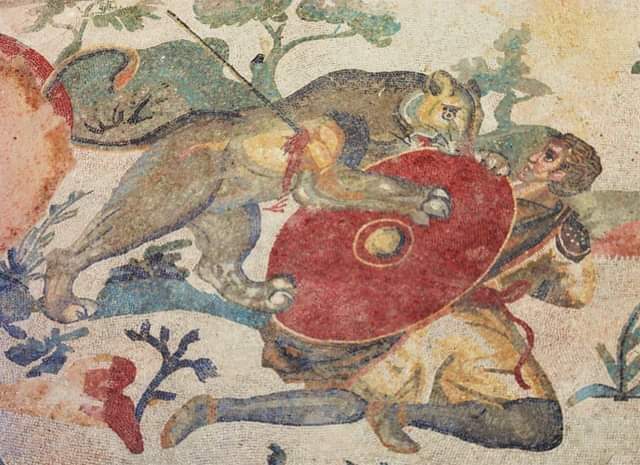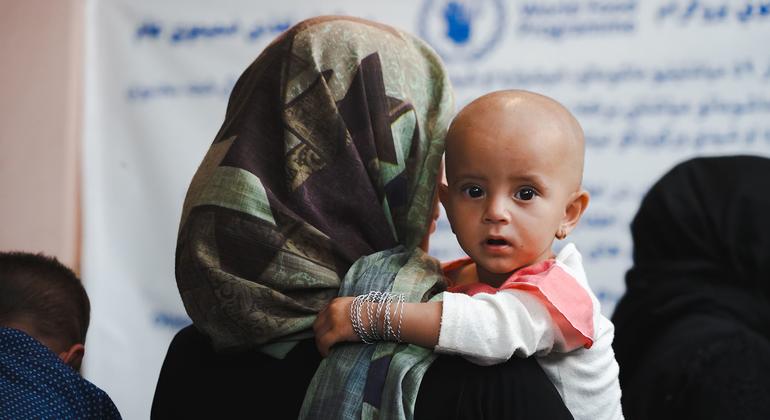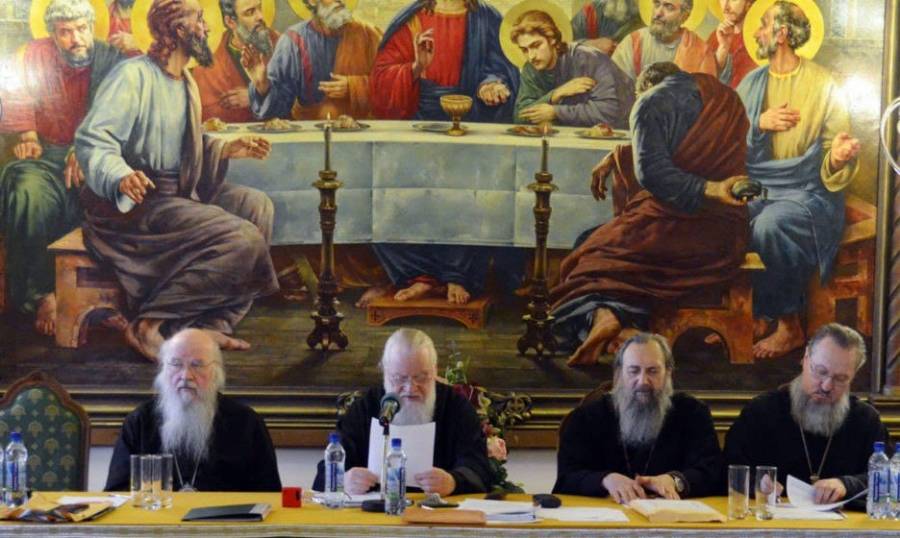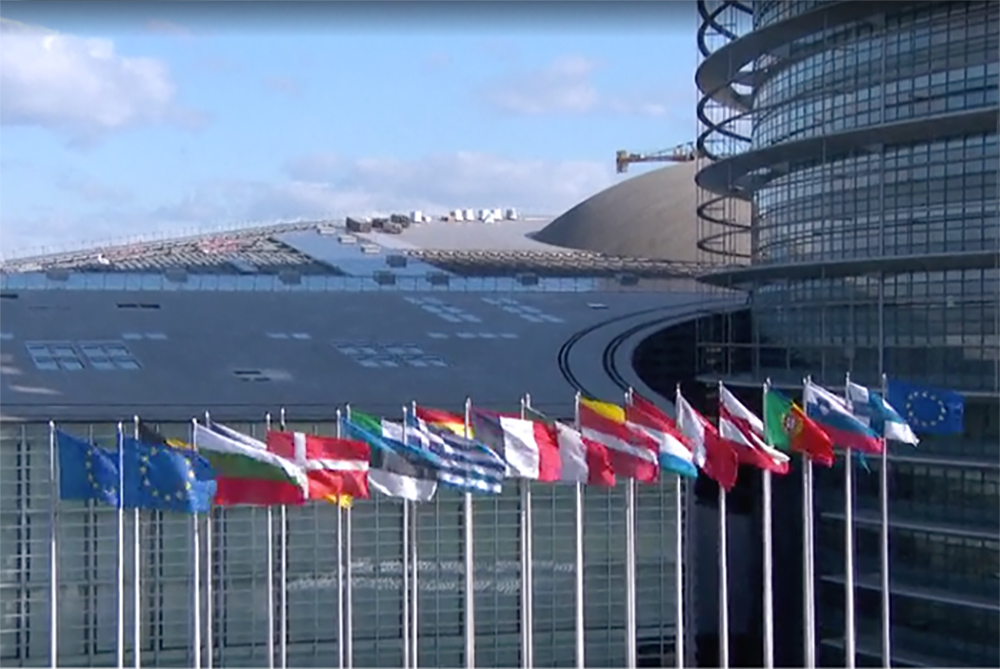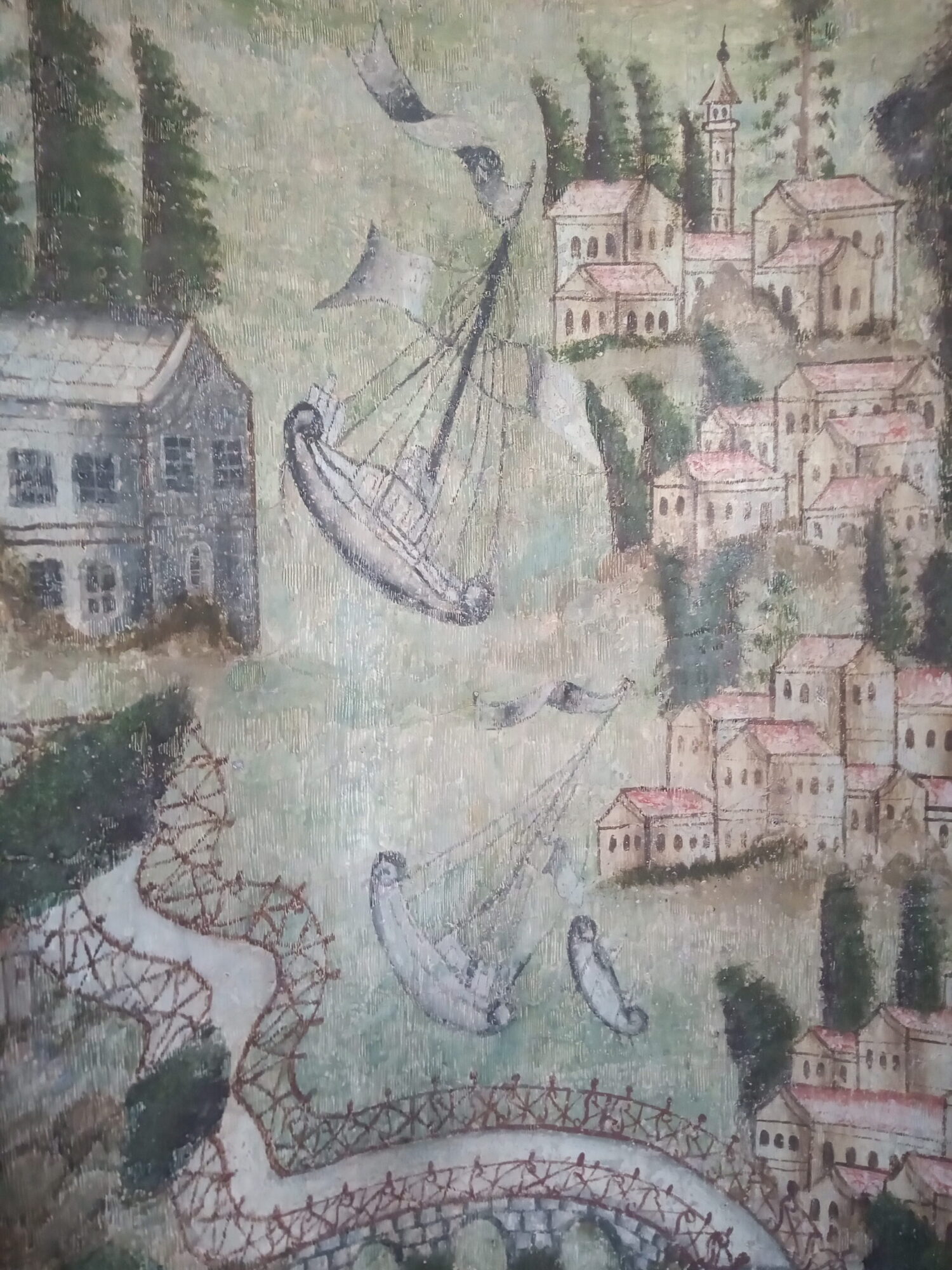By Jamie Moran
9. The belief in God eternally punishing his human ‘children’ by forsaking them in Gehenna/Hell is oddly parallel with the pagan worshipers sacrificing their children in fire in the Valley of Ge Hinnom. William Blake is clear that the ‘god’ of damnation is Satan the Accuser, not the ‘hidden father’ Yahweh.
Isaiah, 49, 14-15= “But Zion [Israel] said, Yahweh has forsaken me, my God has forgotten me.” Then Yahweh replies= “Can a woman forget her suckling child, that she should have no compassion on the son of her womb? Even these may forget, yet I will not forget you.”
None the less, that does not mean Gehenna/Hell should be dismissed in polite company. It has a more powerful point, once free from the punitive misunderstanding.
10. One modern interpretation of Gehenna, which styles itself a ‘narrative historical’ hermeneutic, makes sense of many texts, Jewish and Christian, by understanding the iconography of Hell more in terms of Israel’s struggle with its pagan neighbours. God will vindicate the Jews, finally, whatever the beating they take on the way. So, after all that long historical and political struggle, in which the Jews are repeatedly the victim, at last, at the very end, Yahweh will support and prove, vindicate and laud, the Jews – and ‘give hell’ to their pagan persecutors.
This interpretation makes sense of Isaiah and Jeremiah as well, because it reads those references to the ‘Hell’ coming to Israel as a warning of the imminent fall of the Jewish nation and Exile to Babylon. Thus Jerusalem itself will become like Gehenna/Hell [Jeremiah, 19, 2-6; 19, 11-14] once it falls to the Assyrians. Why? Because when Israel falls, it will be like the Valley of Rubbish, fires will consume it, worms will feed off its corpses.
In short, the images of Hell as the place of “the unquenchable fire” [Mark, 9, 43-48, quoting from Isaiah] and the place “where the worm does not die” [Isaiah, 66, 24; also repeated by Jesus in Mark, 9, 44; 9, 46; 9, 48] refer not to somewhere, or some state of being, we go to after death, but are images of destruction, down-fall, in this life. Both Israel, and her Assyrian enemies, will come to this Hellish condition after they ‘tumble down’, and are brought to ruin. Their own addiction to evil will bring upon them this terrible ruin.
There are at least two very important aspects to this meaning of Hell as final destruction of the Evil Way – not punishment for those who give in to the Evil Way, yet definitely the end of what they valued, pursued, built up, by its power.
[1] The warning that evil doing ‘comes to no good’ in the end is addressed not just to the Jews in their specific context, but to all of us in ever shifting contexts. The constant is that to fight the good fight and walk the good road is not simply difficult in itself, the hard way as the converse of the easy way, but more importantly, it is opposed by worldly forces, and the evil forces ‘secretly’ running them. Hell is ‘hidden’ in this world under cloaks of respectability, validation by human law which cares nothing for real ethical uprightness and tolerates ethical transgression, and an entire patina of poisoned fantasy images of ‘the good life in the earthly paradise’ that seduce and flatter to capture and corrupt human desire. In this situation, the people trying to live by ‘faith, truthfulness, justice, mercy’, are going to get a rough ride. The Way of Evil will prosper and rule, for a time, for a long time, and those opposing it, whether religious or not religious, will ‘get hell’ for their stand.
The imagery of Hell does not say those who opposed redemption will never be redeemed, so as to satisfy some childish urge for vengeance. It is really addressed to those working for redemption, and facing ‘an uphill battle.’ These workers in the spoiled vineyard, trying to make it flower again, have gambled their life on redemption, and to these it is disclosed= you will be vindicated, in the end. Whatever the set-backs, and ‘punishments’ to be put up with from the Evil One and his servants getting up to ‘wickedness in high places’, the leap of faith — its trust in the unknown and non-secured — must be maintained ‘despite everything.’ Carry on. Do not throw in the towel. Do not conform. Dare to ‘come out of the woodwork’, in standing up for Truth against the Lie. In this world, doing good and resisting passing on the evil done to you by doing the same evil to others, may not be respected or materially rewarded= more likely it will be punished; none the less this struggle is its own intrinsic reward, and significantly, it will ‘win out’ over the longer haul.
For people who serve nothing but falsity and lovelessness, their lives, their works, their successes in evil and edifices of vainglory, will end in whole scale and pitiless destruction.
This destruction will be in some sense a ‘final verdict’ on the betrayal of truth, and rejection of love, in such life-projects.
This need not have any implications for an afterlife, given the Jewish emphasis on the ultimate importance of this world, not just the spirit world, on the body, not just the soul, on the composite creation, not just on some supposedly better part of it as opposed to a worse part..
[2] Never the less, even if Hell speaks of the mysterious spiritual power that will be fiercely active in the End Game, it does have one very important implication for the afterlife. It does not imply eternal punishment for evil doing, but it does warn the evil doer of two realities easy to sweep under the carpet. [a] Not only that they will, in the end, ‘leave nothing behind’ as a testament to their time in this world — their legacy to the world will be that they contributed nothing to its redemption and therefore their time in the here and now leaves only a record of guilt and shame. [b] But also that it is not possible to go into the everlasting, in the direct presence of God, with filth, with rubbish, with untruth, with lovelessness. It is not that God punishes us for having done X, Y, Z. It is that such is the divine truth, and the divine love, anything untrue and unloving cannot ‘abide’ in it. In this life, we can hide from truth, and hide from love, and seem, for a while, ‘to get away with it.’ To leave this life is to be stripped naked. No more hiding. The truth of our truthfulness or untruth, our attempt to love or evasion of love, is revealed. It is more than revealed= it cannot survive ‘forever.’ It had a brief ‘shelf life’, but it cannot go into the everlasting.
This is a way of speaking about what we take with us out of this world. We may own a house, a yacht, a car, but ‘you cannot take it with you.’ We are only custodians for a brief moment of these worldly things. Is there anything we can take into the everlasting from our life in this world which will survive in that new environment? Only the deeds of truth and love can ‘go on.’ These will be our robes of honour that we do take with us. Obviously, if we are heavily identified with and invested in untruth and lovelessness, then dying will be a shock, because all that we put such value in, such hope in, will be shown up as worthless, and ephemeral. When it burns up like yesterday’s newspaper in fire, ‘we will have nothing left.’ We will, in that case, enter the everlasting as the real paupers.
11. In Isaiah, Hell is called “the burning place” [Isaiah, 30, 33], and that this burning is ‘accursed’ speaks of something not so concrete as a ruined city after an invading army has sacked it, something more powerful and mysterious.
The historical-narrative hermeneutic should itself not be pushed too literally. Downfall, or destruction, has spiritual and existential meanings as well as a definite political and historical context. What unites all these meanings is what ‘destruction’ really means to, and in, the human heart.
God does not punish, only the devil punishes, and therefore the devil is the architect of the ‘reward and punishment scenario’, as the ‘false god’ of idolatry who demands sacrificing our very humanity for the sake of Mammon. Satanic religiosity is inhuman, anti-human, and in this stance, attacks, and indeed sacrifices, the childlike in everyone. The child is too vulnerable and bendable, too bold and stroppy, too much a mixture of wheat and tares= Satanic religion wants this paradoxical mixture of our basic humanity ‘sorted out’, decided ‘one way or the other way’, and uses the threat of eternal banishment and eternal torture to enforce in this life a premature and harsh division of lambs and goats. The Satanic religion solves it, by deciding in advance of God making any judgement, who is ‘in’ and who is ‘out.’ The ‘in’ are cramped in heart, kow towing to the Satanic Threat; the ‘out’ are more expansive, conflicted, mixed, in heart, but can ‘get there’ in the end, according to God’s judgement. God reads the heart.
God neither condemns, too early, the human heart, nor does he tolerate its lapsing.
God does not punish. But, God certainly does destroy.
Evil is destroyed, if not blatantly [historically-politically], then more inwardly [psychologically-spiritually], because the evil we do puts our own heart ‘in Hell.’
What all of these meanings converge in is the stark reality that the fire of untruth in the human heart cannot ‘eternally abide’ in the Fire of Truth. Thus whether the burning of Truth that consumes untruth happens in this life, or happens after we die, either way, it is an inevitable fate. The heavenly experience of this Fire of Spirit is joy and intensity of passion; the hellish experience of the same Fire of Spirit is torment of passion. ‘No rest for the wicked’= the torment is never at rest, never allows us peace.
The torment arises and then goes ‘on and on’ when we are lying to ourself and to humanity and to God, clinging on to our untruth, resisting its exposure, and repudiating the necessity to let it go, to let it, like the trash it is, be burned up and given over to the worms to feed on.
This chance for purgation starts in our life on earth, and maybe continues into an afterlife.. Let’s hope we take the opportunity for purgation, after death, if we have evaded it in life.
12. But why care about any distinction between the burning of God’s Fire that is heavenly or hellish, depending on our embrace or repudiation of it? Why not say, so what? What is the big deal? Let’s drop the fuss.. Let’s chill out..
The Hell into which untruth in the heart and its deeds brings us can only be ignored, or lightly dismissed, if actions do not matter.
If actions do not matter, then the heart does not matter.
If the heart does not matter, then the ‘organ of fire’ through which God wants to come into the world he has made is lost.
That would be catastrophic. Punishment for wrongs is Satanic. By contrast, it does matter that the evil in the heart, and in the deeds it does in the world, has dire consequences, for the doer and for everyone else.
Most of all, it matters for God, if the human heart is indeed to become the throne-chariot of God’s coming to the world.
Hence, untruth getting burned up in the Fire of Truth is a necessity for the completion of humanity’s calling to be the doorway through which God enters the world.
Hell is in the abysses of the human heart.
13. It is important, given this existential understanding of Hell, to note the way in which Jesus refers to Gehenna 11 times in the New Testament.
One of the motifs he repeats again and again is that it is better to be injured, or incomplete, if this prevents going into Hell, rather than being whole and using this health, talent, strength, to pursue wickedness. “It is better for you that one of the parts of your body perish, than for your whole body to be thrown into Gehenna” [Mathew, 5, 29; also= Mathew, 5, 30; 10, 28; 18, 9; 23, 15; 23, 33; Mark, 9, 43; 9, 45; 9, 47; Luke, 12, 5].
This points in a new direction— to the Cross.
Through our injury, through our incompletion, we may be stopped from ‘potent’ adherence to evil. If we can be broken enough to reach the heart-break in us and in everyone, deep down in the heart, we can then embrace the Cross.
In the heart-break, we are ‘in a better position’ to embrace the Cross.
The Cross undercuts Hell in the deeps of all humanity. Thus, the Cross ends the Dualism of ‘Heaven and Hell.’
This is not widely known in Christianity, because few Christians have been called to walk the extreme Way of the Cross.
Arguably the first to try it out was the Good Thief, who died on the Cross next to Christ. This man was not righteous, but admitted to being unrighteous. On any strict Dualist Judgement of his ‘worthless’ life, he must be headed after death not for paradise, but for Gehenna. Yet the Cross has a reversal whereby the thief, the unrighteous, could come in to the kingdom of the redeemed first, before the righteous. The righteous ‘don’t need the Cross’ – but that is their loss. If they do not embrace it, they miss out on what puts an End to ‘Heaven versus Hell’ by undercutting Hell from within its own root in the human heart in the fathomless abyss.
Jesus had to enter Jerusalem, and go through his Passion, to know the Cross would end Hell.. Heaven versus Hell is a relative truth, like Karma, because it takes seriously the truth or lie in our actions, and thus in the heart from which all action comes; in the Cross, it is reversed, and does not become the eternal truth. A different truth, won from suffering and reversal, emerges from the bottomless abysses where Hell had been ‘hidden.’
The Jews understood Hell as the converse of ‘the kingdom come.’ Yes= in Hell, we realise we betrayed redemption in this world, and thus our remorse and self reproach bites into our heart terribly.
But the Cross ends this Hell of the heart that convicts itself, because its Way Through is a Way of Failure, and Heart-brokenness. This is why in Hell is God’s secret, or ‘hidden wisdom.’
It is the devil who wills Hell to be ‘the end of the road’ for humanity. Hell is a spiritual dustbin where the rejects are thrown away, and the more full to the brim Hell is with the human trash, the better the devil likes it.
Anyone who has a heart can be redeemed= in Hell, and through Hell. Hell becomes, by the Cross, the process of ‘coming through.’
The moment of worst crisis in the burning is often the moment of the most dramatic turn around. In some people’s depths, you can hear the change-over like a summer tornado suddenly in your back yard. In other people’s depths, it happens imperceptibly, like the gentlest spring rain.



